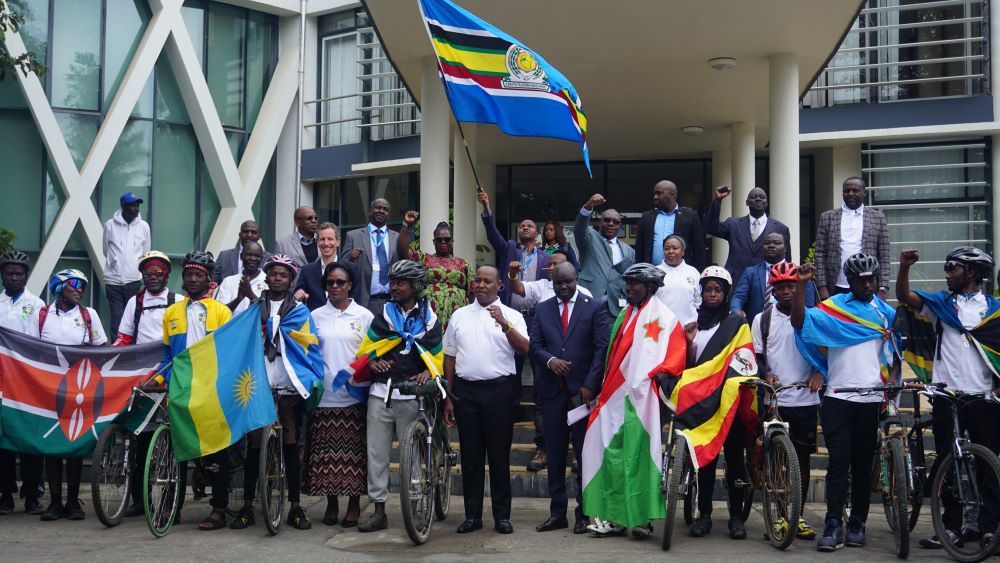The Great African Cycling Safari (GACs), previously known as the Tour d’EAC, started in 2016. Ever since, youths from across the EAC Partner States have participated in this cycling event, which is considered the world’s longest endurance cycling course. In 55 days, participants cover 6,000 kilometres across East Africa, traversing Kenya, Tanzania, Burundi, Rwanda, and Uganda.
In 2023, the event was supported by the EAC Secretariat, EAC-GIZ, and Equity Bank, amongst others. Its purpose was to sensitise East Africans on the EAC integration process and to focus on boosting food security and mitigating the effects of climate change.
Along the route, the cyclists had the chance to be immersed in the vibrant local communities, learning about their food security and climate change challenges and how they could find the most efficient solutions to solve them. The interactions with the local communities gave citizens a deeper understanding of food security and climate change and provided opportunities to bring the benefits of East African regional integration closer to them.
Prior to the grand finale in Kampala, Uganda, a regional dialogue on food security and climate change was held. Mr. Valent Arinitwe, Principal Forestry Officer, Uganda, emphasized the importance of sustainable forestry practices in ensuring long-term food security for the region. He highlighted the need for collaborative efforts between the government, private sector, and local communities to protect and restore forests, which play a crucial role in maintaining ecological balance and supporting agricultural productivity.
Public dialogue and tree planting session at the Arusha Technical Institute by the Cyclist together with the EAC and GIZ
Following their encounters with citizens across the EAC, the young cyclists developed recommendations on how the EAC could counteract the damaging effects of climate change and secure food for East Africans:
- Young people should be more involved in the decision-making process because they have unique perspectives and innovative ideas on effective solutions to global challenges such as hunger, malnutrition, and climate change.
- Improved data on food security will lead to a more accurate understanding of the challenges and vulnerabilities and help to develop targeted interventions that address the root causes of food insecurity on a regional scale.
- A focus on locally sourced food rather than on global markets, with short supply chains, community-supported agriculture, and local producers and consumers, reduces dependence on long-distance transportation and global supply chains. Networks among farmers, producers, and consumers within a community promote resilience, sustainability, and a sense of shared responsibility for food security.
- The EAC Partner States, in collaboration with other stakeholders, are urged to provide appropriate training and capacity building to promote the use of appropriate practices, technologies, and best practices to secure food in the region.
- The EAC Partner States should put the Right to Food as a human right at the centre of their policies, programmes, and governance procedures pertaining to food. This will give local communities and indigenous peoples decision-making power concerning their food systems.
Find more inforamtion on EAC-GIZ here.
